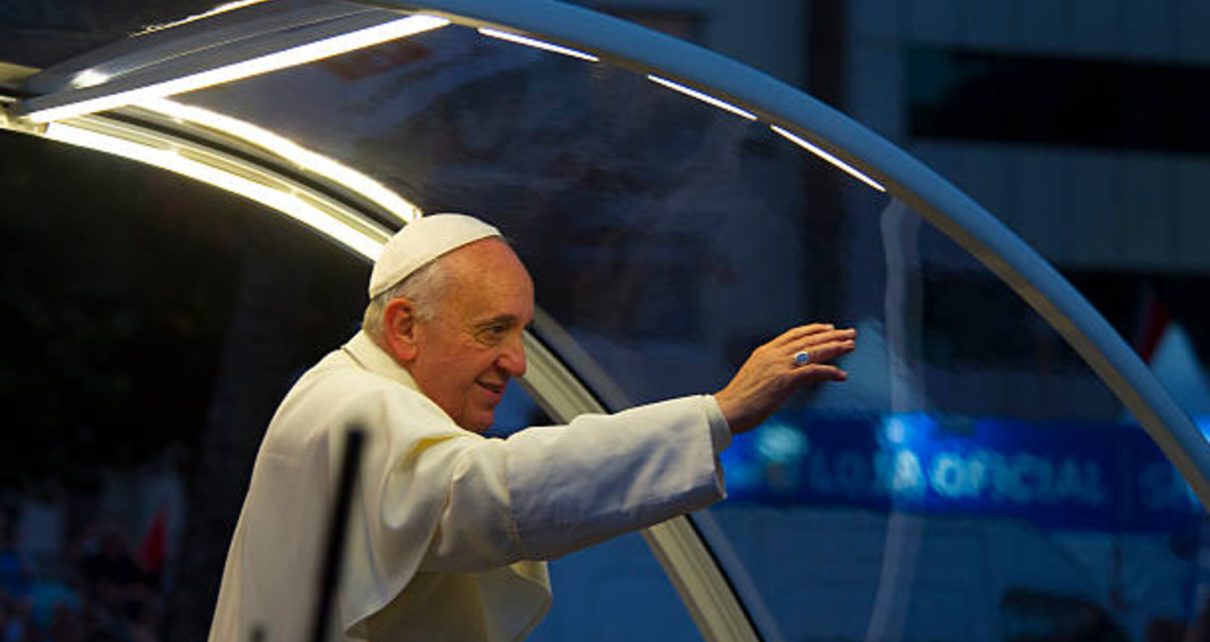The Catholic Church mourns the loss of Pope Francis, who passed away at the age of 88 on Easter Monday, April 21, 2025. His death marks the end of a transformative papacy that championed social justice, interfaith dialogue, and environmental stewardship.
Pope Francis had a history of respiratory illnesses, stemming from a lung surgery in his youth. In February 2025, he was hospitalised for bronchitis, which later developed into bilateral pneumonia. Despite intensive medical care, including blood transfusions and respiratory therapy, his condition worsened, leading to his passing.
Cardinal Kevin Farrell shared the news in a solemn announcement on Vatican television: “Dear brothers and sisters, it is with profound sadness I must announce the death of our Holy Father Francis. At 7:35 this morning, the Bishop of Rome, Francis, returned to the house of the Father.”
Just a day earlier, on Easter Sunday, Pope Francis had appeared in public for the first time in weeks. He rode through St. Peter’s Square in an open vehicle, waving to cheering crowds and giving a special Easter blessing.
The Vatican spared no effort in ensuring the Pope received the best medical care. He was admitted to the Agostino Gemelli Polyclinic Hospital, where he underwent treatments for pneumonia and kidney complications. Thousands of faithful gathered in St. Peter’s Square to pray for his recovery, reflecting the global concern for his health.
Pope Francis was the first non-European pope in nearly 1,300 years, and his leadership brought a humbler, more inclusive approach to the Church. His death leaves a leadership vacuum and raises questions about the future direction of the Catholic Church.
The funeral rites will follow the updated liturgical book approved by Pope Francis himself. His body will be placed in a coffin immediately after the ascertainment of death, emphasising the pastoral nature of the ceremony. The funeral Mass will focus on expressing the Church’s faith in the Risen Body of Christ.
The conclave to elect the next pope will convene within 15 to 20 days. Potential candidates include:
- Cardinal Pietro Parolin – Known for his diplomatic expertise.
- Cardinal Matteo Zuppi – A progressive figure aligned with Francis’ vision.
- Cardinal Peter Erdo – A conservative voice within the Church.
- Cardinal Raymond Leo Burke – A traditionalist with strong doctrinal views.
While the possibility of an African pope remains uncertain, figures like Cardinal Peter Turkson of Ghana have been considered in past conclaves. An African pontiff would symbolise the Church’s growing influence in the Global South and its commitment to diversity.
Pope Francis I, born Jorge Mario Bergoglio on December 17, 1936, in Buenos Aires, Argentina, was the 266th pontiff of the Roman Catholic Church. As the first Jesuit pope and the first from the Americas, his election in 2013 marked a turning point, introducing an era characterised by humility, social justice, and a renewed outreach to the marginalised. Raised in a working-class family of Italian immigrants, he initially worked as a chemical technician before embracing the call to religious life. After entering the Society of Jesus in 1958 and being ordained in 1969, he quickly rose through the ranks, serving as the provincial superior for Argentine Jesuits and later as Archbishop of Buenos Aires. Elevated to the College of Cardinals in 2001, his pastoral approach and commitment to dialogue and reform have redefined the face of modern Catholicism.
Francis served alongside his predecessor, Pope Benedict XVI, who shocked the world by resigning in 2013 and later died in 2022. With nearly 80% of the current cardinals chosen by Francis, there is a strong chance that the next pope may continue his mission for a more open and modern Church.
As the world reflects on his legacy, Pope Francis will be remembered as a humble reformer who tried to bring hope and healing to a troubled institution.


